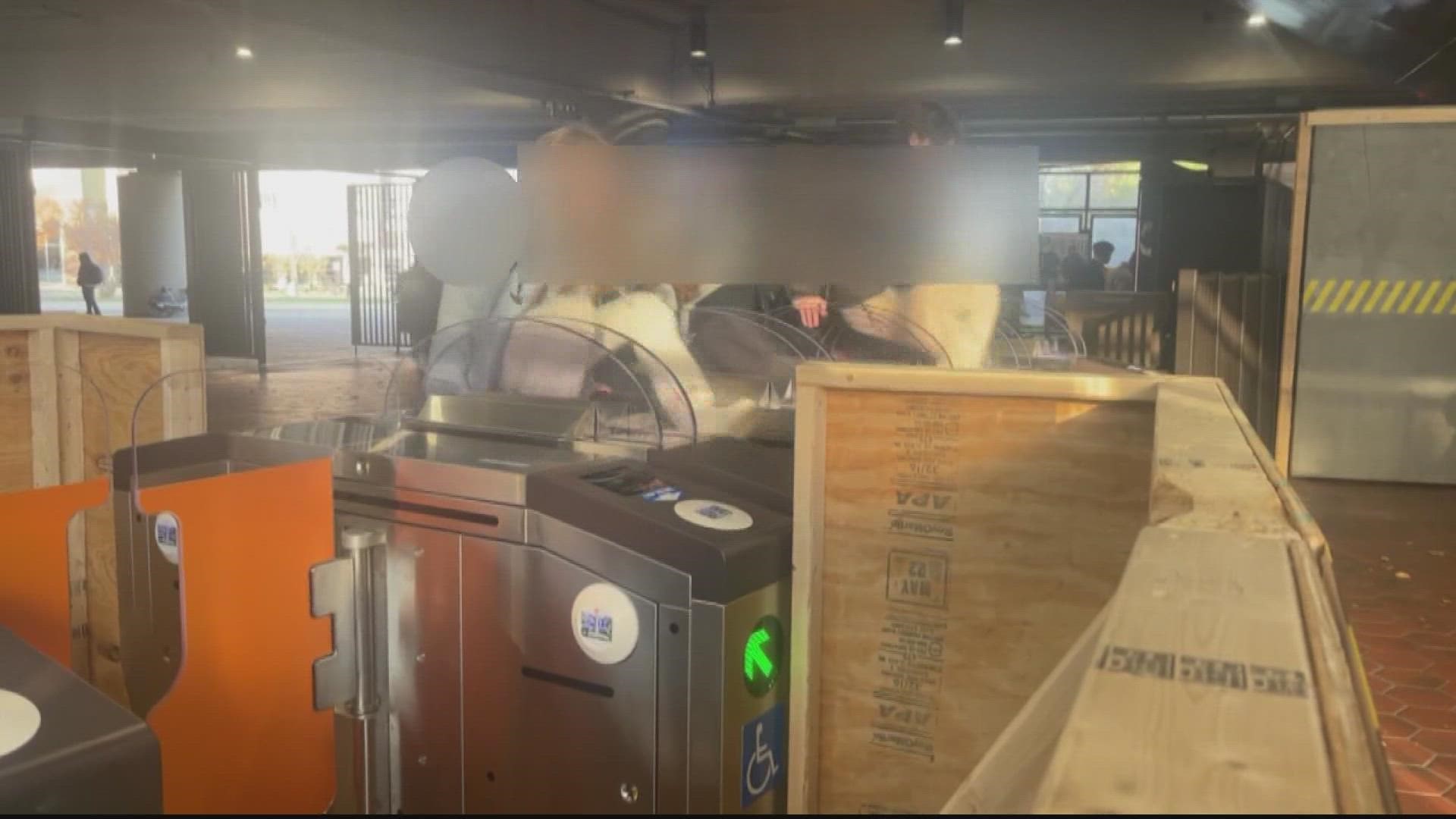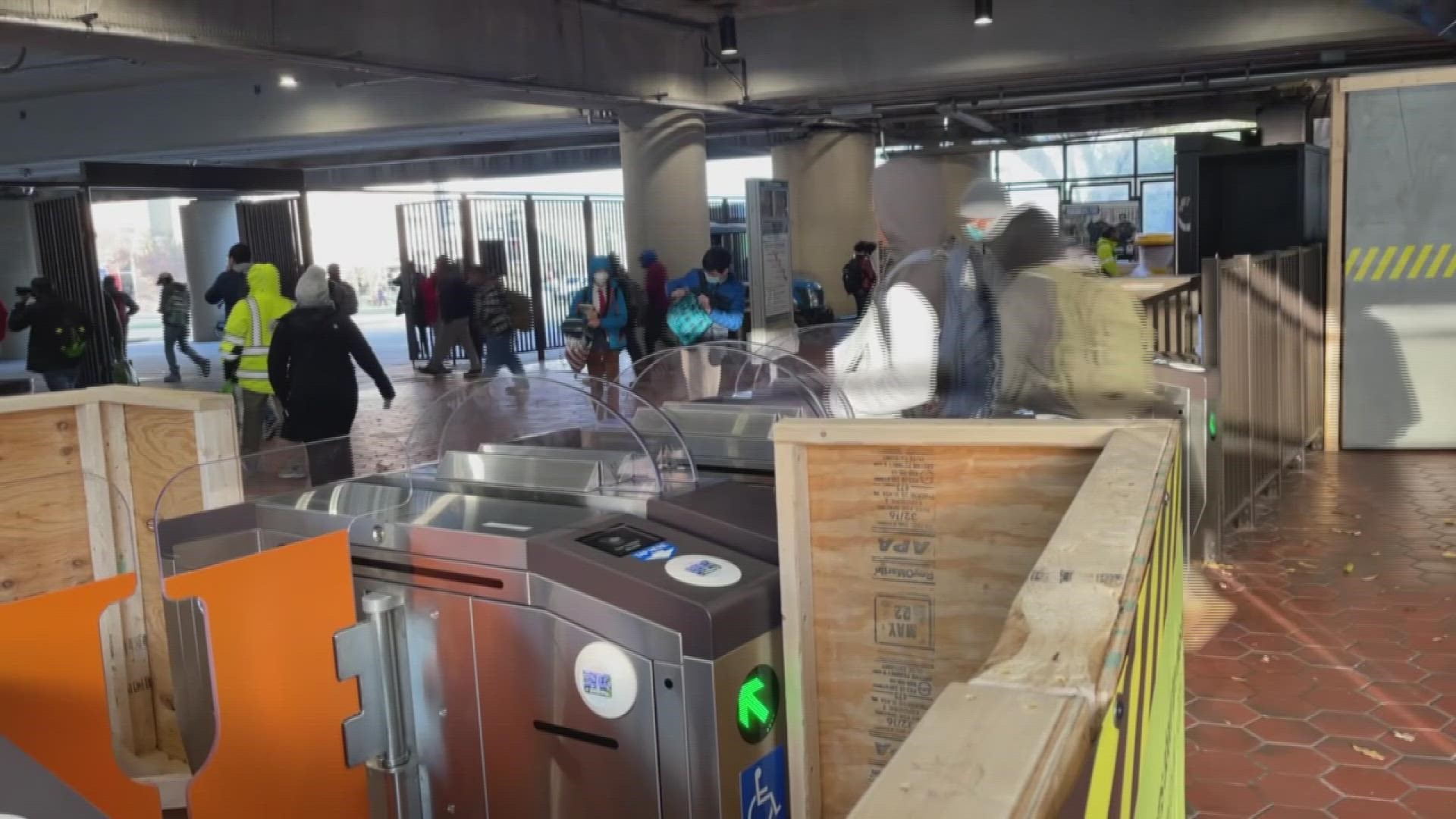WASHINGTON — Metro riders may notice an interesting new look at one area metro station, with more changes on the way as the Washington Metropolitan Area Transit Authority (WMATA) continues to crack down on fare evasion.
Metro Transit Police (MTPD) began issuing fare evasion citations on Nov. 1. Metro spent the last month raising awareness and hosting a warning campaign for passengers regarding fare enforcement. Citations are being handed out to anyone jumping fare gates, improperly using emergency gates, or not tapping fare boxes on Metrobuses.
In another step toward curbing fare evasion, WMATA installed two new prototypes Thursday at the Fort Totten Metro Station in Northeast.
The fare gates have been adapted with saloon-type swinging doors, which General Manager and CEO Randy Clarke said are fairly expensive because they fundamentally change the mechanics of every one of the gates. The prototypes make jumping over the gate less likely but increase the chance of "piggybacking," which is when one person follows someone else through the gate.
Another prototype has a unique design that is supposed to stop people from using their arms to plant on either side of the gate and jump over, which is the most common type of fare evasion. The design uses blades at the top of the gate that aims to keep people from putting their hands down to vault over.
However, while WUSA9 was getting footage of the new prototype, several people continued to jump the gate regardless of the enhancement.
When asked about the changes, Clarke said there is no perfect system.
"I know there has been a lot of conversations about the gates. Why not this and how about that? You know this is the gate system that we currently have. And other gate systems may prevent people from jumping but they may encourage people to do piggybacking so there’s never a perfect gate," said Clarke. "If we wanted to have a perfect gate that never has fare evasion it’s called a wall and we won't run service.”
The prototypes will be installed at select rail stations for employees to test first. The general public starts using the modified faregate early next year, mostly at stations where data shows fare evasion is most common.
Metro continues to look at other ways to prevent fare jumping, including a heavy police presence and handing out fines for the first time in three years. Since it started cracking down on fare evasion 17 days ago, police have issued 35 tickets.
Police officers report hundreds more perspective fare evaders have been turned around by police and either leave or go do the right thing and purchase a fare card.
WATCH NEXT: Metro launches campaign against fare evasion
WMATA said that people who neglect to pay fares may receive fines for fare evasion in each jurisdiction.


